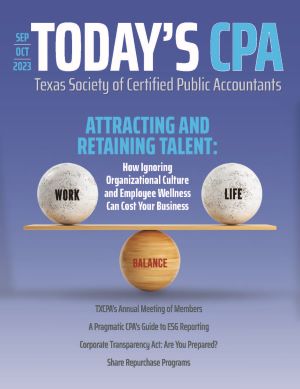September 25, 2023
Accounting and Auditing: SEC Finally Issues Long Overdue Rules Requiring Extraction Companies to Report Payments to Governmental Entities for Resource Development
By Don Carpenter, MSAcc/CPA
After two previously unsuccessful attempts to promulgate reporting requirements for extraction companies laid out in Dodd-Frank, the SEC has issued rules that require disclosure of payments made to commercially develop oil, natural gas or other minerals. After a first attempt was vacated by a U.S. District Court and a second by a joint resolution of Congress, the third attempt may just be the charm.
The requirement in the Dodd-Frank Act was enacted to address perceived corruption in the extractive industries. It has long asserted that payments made to governmental entities, especially in less-developed countries, are routinely misappropriated by the ruling elite and become little more than thinly veiled bribes. The rule was intended to bring accountability through transparency.
But even this latest version is not without its critics. Two SEC commissioners issued separate dissenting opinions, with one of those opinions claiming the new rules fail to meet the intent of Dodd-Frank. Industry watchdogs also assert that the disclosure requirements fall well short of similar reporting requirements of other developed countries.
Since the reporting requirements are under the auspices of the SEC, they apply only to registrants. Private companies are not required to make similar disclosures, opening a loophole for projects intent on avoiding disclosure. Further, the disclosures apply only to reporting entities involved in the commercial “extraction” or “processing” of natural resources. Companies providing equipment such as offshore drilling platforms or services such as geological support would not be included in the requirements. Registrants are required to include payments made by any “controlled” entity that follows the GAAP or IFRS standards of entities requiring full consolidation.
Disclosure must be made at the project level. But the definition of “project” in these most recent rules has been the subject of some criticism due to its failure to enhance the stated goal of transparency. Earlier versions required disclosure at a granular level determined by individual contract, license, lease or concession.
The new rules allow for significant aggregation of payments. Reporting is determined at a major subnational governmental jurisdiction by type of resource and method of extraction. Under this definition of a project, payments made to a national government for the extraction of petroleum could be reported in one lump sum, although they may cover multiple distinct contracts.
Payments that qualify for reporting are broadly defined to include not only the standard rents, royalties, taxes and lease payments but also dividends and payments for infrastructure. In addition, any community and social responsibility (CSR) expenditures fall within the definition of reportable payments. Payments-in-kind from production are also included. Payments of less than $100,000 to a foreign or federal government are excluded as de minimis; however, a series of related payments are aggregated for purposes of the de minimis test.
Reporting is not required where it would conflict with foreign law or terms of pre-existing contracts. Although the SEC did not specifically agree with the conclusion, the background discussion of the new rules noted that one commentor stated that Qatar and China prohibit such disclosure. It was also noted that similar Canadian and EU disclosure requirements do not have a similar conflict exemption. The rules also allow reporting entities to apply for specific exemptions on a case-by-case basis.
Smaller reporting companies and emerging growth companies are exempt from the reporting requirements. Likewise, companies are given a one-year grace period for reporting after completing an initial public offering (IPO).
Qualified payments will be reported on Form SD, which will be modified to provide for such reporting. Form SD is an SEC form already in use to satisfy special disclosure requirements implemented under Dodd-Frank relating to conflict minerals contained in products of reporting companies. The filing must be on EDGAR and available in XBRL format to allow readers to extract and analyze the data.
In a rather unusual step, the SEC also determined that the required information is being “furnished” to the Commission rather than being “filed.” The distinction could have significant implications because information “filed” with the Commission is subject to personal liability for any false or misleading statements of material fact under Sec. 18 of the Exchange Act.
This limitation of liability arguably could have significant ramifications regarding the effectiveness of the reporting requirement. The SEC justified this limitation on the basis that the disclosures are not motivated as much to protect investors as to increase accountability of governments for proceeds they receive for natural resources.
The new requirements were published in the Federal Register on March 16, 2021, and became effective 60 days thereafter. However, the first Form SD is due within 270 days of the reporting entities’ fiscal year end. This means that for a calendar year registrant, the first report is due September 30, 2024.
About the Author: Don Carpenter is clinical professor of accounting at Baylor University. Contact him at Don_Carpenter@baylor.edu.























